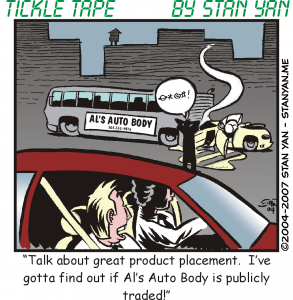Humans have basic instincts for survival. They need to protect themselves at all costs. Technically, an instinct is inborn, such as the drives for hunger and sex. But humans are complex creatures in that we also have learned “instincts,” habitual ways of behaving that are so automatic and unconscious that they seem as if they are innate. For example, as you drive in busy traffic, you “instinctively” slow down or change lanes when the car in front of you seems to be slowing down too quickly.
You may have noticed that many drivers will make a lane change to avoid slowing down, even when both lanes are about to come to a halt, and there is no logical reason for making the lane change. People react “instinctively.” They often act without thinking logically about their options and tend to make poor decisions. Behavioural economists have demonstrated that people also make automatic, unconscious decisions when trading the markets.
They are extremely risk-averse. They enjoy the pleasure of a sure win, even a small one, but try to avoid the pain of losses at all costs. Yet there is no logical reason to show such an asymmetry regarding their decision making. Investors also sell their winning trades prematurely so they can lock in their profits. These unconscious and automatic decisions reflect a strong human desire to avoid risk. As humans socially evolved, they learned to protect their survival by playing it safe. Playing it safe may be prudent for long-term investors, but for short-term investors who want to make huge profits, fear of risk and uncertainty is an impediment to success. It is necessary to identify this need for safety and security and “reprogram” yourself to work around it.
A common illustration of risk aversion happens when market participants follow the masses as if they are wild animals banding together as a herd for protection. They look toward others for direction, regardless of the consequences. In recent weeks, for example, NASDAQ stock prices have been falling. People following the herd have participated in a massive sell-off.
Profits were not what they expected, so the masses sold. As more and more people heard the news or saw the price drop, more and more participants sold. What else could they do? It’s scary to see the price plummet. Is the news going to get worse? Will the prices reach even lower lows? Most people are afraid of pain. They are afraid that the price may go even lower, and they sell because they don’t want to lose even more money. Of course, not all investors will sell.
Some will become so panicked that they will be afraid to acknowledge their losses and want to leave them on paper, hoping that the prices will return to previous levels in the coming weeks. The masses try to avoid risk and pain, and by doing so, they tend to behave automatically. Active, serious traders, in contrast, react more decisively. They carefully consider their options, good or bad, make a clear decision, and follow through. They know they may be wrong, but they realize that to trade profitably they must learn to trust their hunches and act on them.
For example, it may be a wrong move, but for illustrative purposes, suppose that a trader decides that this may be a good time to buy the QQQ, while it is low, and bet that it will increase in upcoming months. A trader can buy on weakness, while the price is low, and sell on strength as the prices rise. Most people would be afraid to try such a strategy. It seems too risky, since the price may go down further. The winning trader, however, is willing to trust his or her instincts, right or wrong, and see what happens. He or she doesn’t have to be right. He or she doesn’t have to win. It is a matter of making a thoughtful, logical analysis and acting on it.
If you want to be a winning trader, you must learn to identify your need to follow the masses and teach yourself to avoid doing what your need for security compels you to do. You must “reprogram” yourself to think outside the box. Rather than follow the masses, you must evaluate various options, which may be contrary to what most people would do, and act consciously and deliberately.
Over time, and with extensive experience, you will develop perceptions and skills that will allow you to trade creatively and decisively. Once you have “reprogrammed” your behaviours, you may be able to unconsciously respond with your new “instincts.” But rather than following the masses, you’ll intuitively be able to act independently. And the more decisively and independently you can trade, the more profits you’ll realize.


